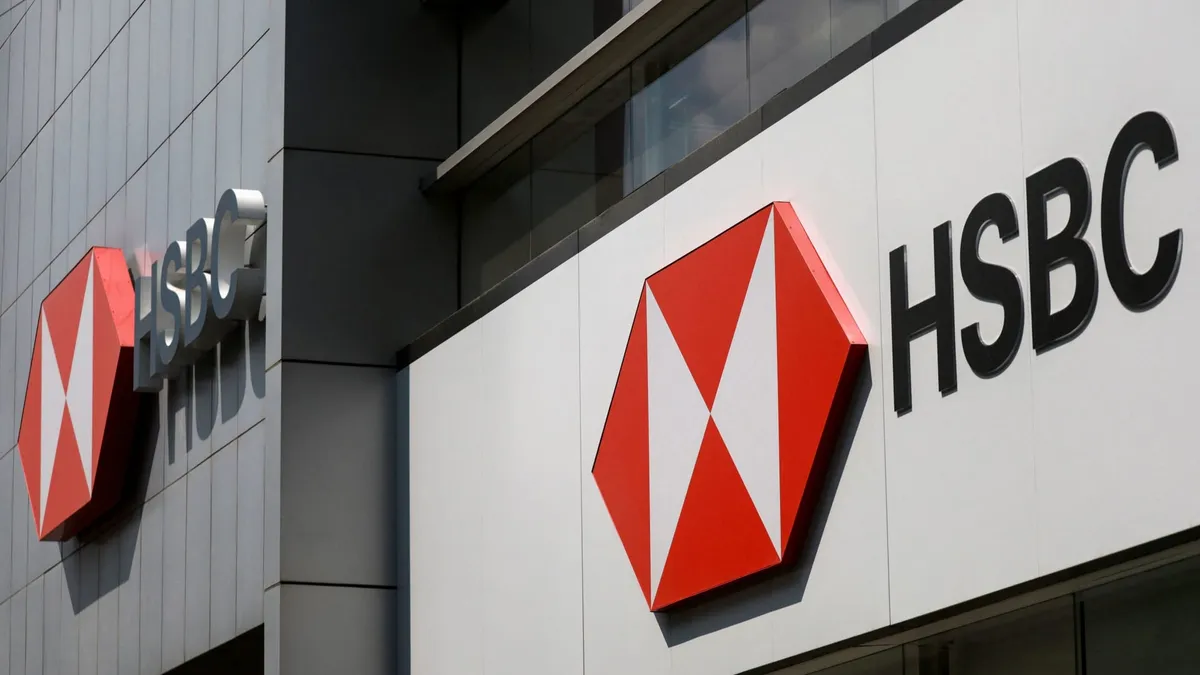
HSBC, Europe's largest lender, announced robust third-quarter results on Tuesday, surpassing profit expectations largely due to a significant rise in net interest income and strong performance from its wealth management division. For the three months ending in September, the bank reported a pre-tax profit of $7.3 billion, reflecting a decline of nearly 14% compared to the same period last year. This decrease was primarily attributed to higher operating expenses, including notable legal provisions totaling $1.4 billion.
HSBC’s financial performance for the third quarter of 2025 showcased impressive metrics against consensus estimates. Key highlights include:
Profit before tax: $7.3 billion, compared to $5.98 billion expected Revenue: $17.8 billion, exceeding the forecast of $17.05 billionThe bank anticipates that its net interest income will reach $43 billion or more in 2025, bolstered by increasing confidence in the future trajectory of policy rates in crucial markets such as the United Kingdom and Hong Kong. HSBC also projects double-digit percentage average annual growth in fees and other income from its wealth division over the medium term.
During the third quarter, HSBC's net interest income surged by 15% year-on-year, amounting to $8.8 billion. Additionally, income from the wealth division experienced a remarkable 30% increase year-on-year, reaching $2.68 billion. "The intent with which we are executing our strategy is reflected in our performance this quarter, despite taking legal provisions related to historical matters," said HSBC Group CEO Georges Elhedery.
HSBC noted a 24% rise in operating expenses, largely due to provisions set aside for legal matters, including $1.1 billion related to claims stemming from the infamous Bernard Madoff investment fraud case. This case originated from a 2009 lawsuit filed by Herald Fund SPC against HSBC's Luxembourg arm, seeking the return of securities and cash allegedly lost in the fraud. While the court rejected HSBC's appeal concerning the securities restitution claim, it did accept the challenge regarding the cash portion. HSBC intends to file a further appeal with the Luxembourg Court of Appeal and, if unsuccessful, will dispute the final amount in subsequent proceedings.
HSBC indicated that the $1.1 billion provision would reduce its Common Equity Tier 1 (CET1) capital ratio by approximately 15 basis points. The CET1 ratio serves as a crucial indicator of a bank's financial strength and stability.
Earlier this month, HSBC announced its intent to take its subsidiary Hang Seng Bank private, valuing the transaction at over HK$290 billion ($37 billion). Elhedery emphasized that this deal reflects HSBC's confidence in Hong Kong as a leading global financial center. However, Hang Seng's non-performing loan ratio rose to 6.69% in the first half of 2025, primarily due to ongoing stress in the property sector.
Following these announcements, HSBC shares in Hong Kong saw an increase of 1.3%.
—Contributions to this report were made by CNBC's Lim Hui Jie.